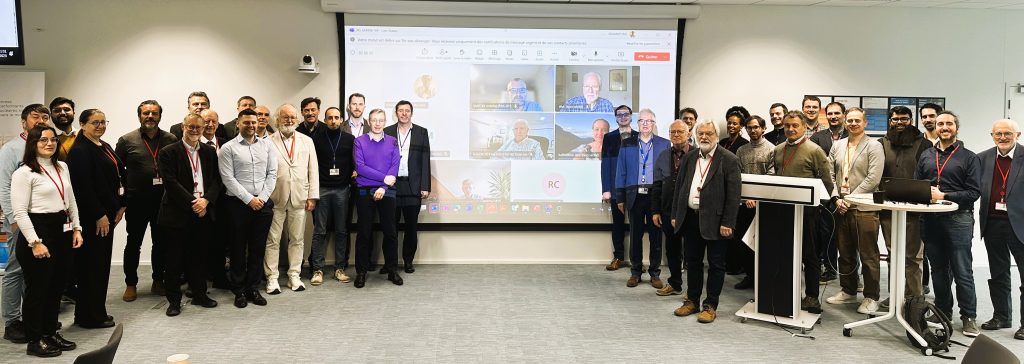
The GEMINI 4.0 project has reached its conclusion, marking a significant milestone in the development of next-generation nuclear technology for industrial applications. This European initiative, which launched in June 2022, held its final project meeting in Lyon, France bringing together over 30 participants at the Framatome offices and 10 additional attendees online.
The project’s culmination represents more than just an ending; it signals the beginning of a new chapter in clean energy solutions. Building upon the foundations laid by its predecessor, GEMINI+, this initiative has demonstrated that High Temperature Gas-cooled Reactors (HTGRs) could be the key to deep industrial decarbonisation, with Poland identified as a potential location for the first demonstration project.
A Pioneering Project for the Energy Transition
GEMINI 4.0 has confirmed that HTGRs offer a competitive and safe solution for poly-generation, the simultaneous production of industrial heat, electricity, and hydrogen from a single source. This versatile approach addresses the diverse energy needs of modern industries whilst significantly reducing their carbon footprint. One reactor providing multiple forms of energy that industries desperately need to operate cleanly and efficiently.
Major Contributions to the Energy Ecosystem
The project has delivered breakthroughs across four critical areas:
Safety and Regulation. The team has strengthened the safety case for HTGR technology and improved its readiness for nuclear regulatory approval. These are essential steps before any commercial deployment.
Economic Viability. Crucially, the project has demonstrated that HTGRs can operate profitably in poly-generation mode, offering industries the flexibility they need to adapt to changing energy demands and market conditions.
Fuel Supply Chain. GEMINI 4.0 has evaluated the development of HALEU TRISO fuel supply chains, specialised advanced fuel designed for high-temperature reactors, and explored solutions for managing spent fuel at the end of its lifecycle.
Communication and Public Acceptance. An extensive outreach campaign has been conducted to educate policymakers and industry leaders about the benefits of HTGR technology in supporting the energy transition.
Looking to the Future
With GEMINI 4.0 now complete, the results are paving the way for broader adoption of HTGRs across Europe and beyond. These reactors could prove particularly valuable for heavy industries such as chemicals and petrochemicals, which require extremely high temperatures that are difficult to achieve through renewable sources alone.
The project has also strengthened international cooperation around advanced nuclear technologies, making it easier to integrate these solutions into future energy strategies. This collaboration is particularly important as the SMR (Small Modular Reactor) Industrial Alliance seeks to promote small modular reactors as viable solutions for decarbonised energy production.
GEMINI 4.0’s HTGR-focused approach offers an innovative alternative that could fundamentally transform how industries meet their energy needs. Rather than relying on multiple separate systems for heat, electricity, and hydrogen production, a single HTGR facility could provide all three efficiently and cleanly.
The Project’s Legacy
In essence, GEMINI 4.0 represents a step towards more flexible, cleaner nuclear energy that is better adapted to modern industrial requirements. Its legacy may well shape the future of sustainable energy production, offering a practical pathway for heavy industries to decarbonise without compromising their operational efficiency.
As Europe continues its push towards net-zero emissions, projects like GEMINI 4.0 demonstrate that innovative nuclear technologies could play a crucial role alongside renewables in creating a truly sustainable energy system.

Comments are closed.



